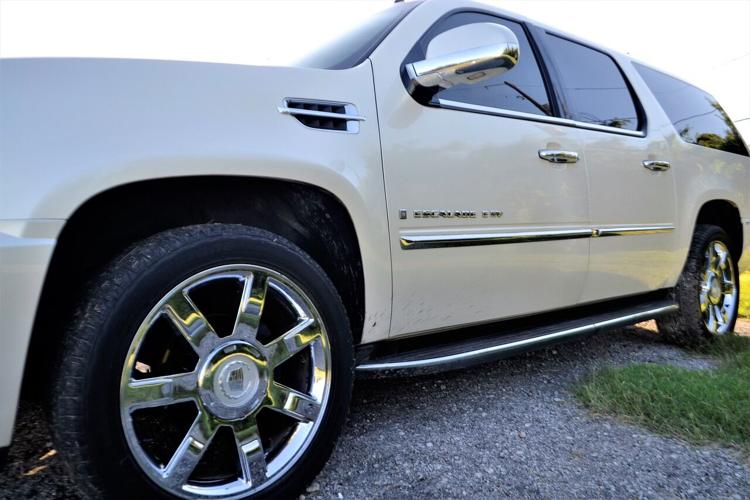
Are you thinking about buying a car? One of the first decisions you'll need to make is whether to buy new or used. Both options have their own unique advantages and drawbacks, making it a tough choice for many potential car buyers. Some may be tempted by the shiny appeal and warranty coverage of a brand-new vehicle, while others may prefer the cost-savings and variety of options available with a used car. But which option is truly the best for you?
In this blog post, we'll explore important factors to consider before buying a car, including new vs used, to help you make a well-informed decision. Without further ado, let's get started.
Understand Your Needs
Before making a big purchase like a car, it's important to understand your needs. As seen at chulavistaford.com, there are different types of cars on the market, each with their own unique features and purposes. Consider factors such as your lifestyle, daily commute, and family size when deciding on a car.
Do you need a spacious family vehicle or a compact car for city driving? Are fuel efficiency and eco-friendliness top priorities? Is all-wheel drive necessary for harsh weather conditions? Understanding your needs will help narrow down your options and find a car that best fits your lifestyle and budget. It's also important to consider potential future needs, such as growing family size or changing job requirements.
Budget
Another crucial factor to consider before buying a car is your budget. Be realistic about how much you can afford to spend on a car, including upfront costs like down payment, taxes, and registration fees, as well as ongoing expenses like insurance and maintenance. It's recommended to budget no more than 20% of your monthly income for all car-related expenses.
Keep in mind that a used car may have a lower upfront cost, but it may also require more maintenance and repairs in the long run. On the other hand, a new car may have a higher price tag but could come with better warranty coverage and lower maintenance costs. Consider your budget carefully to make the best decision for your financial situation.
Depreciation
One of the biggest considerations when choosing between a new or used car is depreciation. New cars depreciate in value much faster than used cars, meaning they lose their value quicker over time. According to Edmunds, a new car can lose up to 20% of its value in just the first year of ownership. This means that if you were to sell your new car after a year, you could lose thousands of dollars.
On the other hand, used cars have already gone through their initial depreciation period and may hold their value better in the long run. Most of them have already taken their biggest depreciation hit and can provide more value for your money. Consider this factor when making your decision as it can greatly impact your finances.
Maintenance and Repair Costs
Along with depreciation, maintenance, and repair costs are another important factor to consider when deciding between a new or used car. New cars typically come with warranties that cover the cost of repairs for a certain period of time, providing peace of mind for owners. However, once the warranty expires, owners must cover all maintenance and repair costs out-of-pocket.
Used cars may have a lower upfront cost, but they may require more frequent and expensive repairs due to wear and tear. For instance, you will have to pay for a new battery or tires sooner on a used car compared to a new one. It's recommended to research the make and model of the car you're interested in to gauge its reliability and potential maintenance and repair costs.
Warranty Coverage
As mentioned before, new cars usually come with warranties that cover certain repairs for a set period of time. This can provide peace of mind and save on unexpected expenses. It's important to carefully review the warranty coverage offered by different car manufacturers before making a decision. Some may offer longer warranties or extended coverage for certain parts, while others may have more limited coverage.
Used cars may also come with some form of warranty, depending on their age and condition. Be sure to thoroughly research the warranty coverage of any used car you're considering to avoid unexpected expenses in the future.
Safety Features
When it comes to the safety of you and your passengers, it's important to consider the safety features of a potential car purchase. New cars often come equipped with the latest advanced safety technologies such as lane departure warning, automatic emergency braking, and blind spot monitoring. These features can help prevent accidents and protect you in the event of a collision.
Used cars may have some safety features, but they may not be as advanced or up-to-date as those found in newer models. Consider your priorities for safety when making a decision between a new or used car.
Resale Value

While no one wants to think about selling their new car, it's important to consider the potential resale value when making a purchase. As mentioned before, new cars depreciate quickly, which means they may not hold their value as well in the future. However, some popular models and brands may have better resale values than others.
Used cars can also vary in resale value depending on factors such as make, model, year, and mileage. However, since they've already gone through their initial depreciation period, they may hold their value better in the long run compared to new cars. Consider potential future plans and the likelihood of selling your car when weighing this factor.
The decision between buying a new or used car ultimately depends on your individual needs and preferences. It's important to consider factors such as budget, depreciation, maintenance and repair costs, warranty coverage, safety features, and resale value before making a decision. Each option has its own pros and cons, so it's crucial to carefully weigh these factors to find the best fit for your lifestyle and budget. Whether you choose a new or used car, make sure to do thorough research and test drives before making a purchase.



(0) comments
We welcome your comments
Log In
Post a comment as Guest
Keep it Clean. Please avoid obscene, vulgar, lewd, racist or sexually-oriented language.
PLEASE TURN OFF YOUR CAPS LOCK.
Don't Threaten. Threats of harming another person will not be tolerated.
Be Truthful. Don't knowingly lie about anyone or anything.
Be Nice. No racism, sexism or any sort of -ism that is degrading to another person.
Be Proactive. Use the 'Report' link on each comment to let us know of abusive posts.
Share with Us. We'd love to hear eyewitness accounts, the history behind an article.